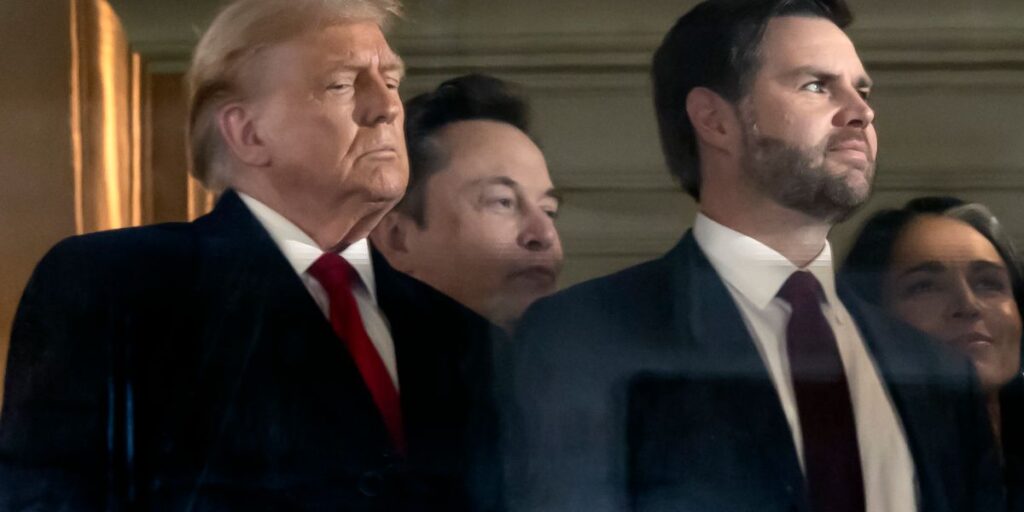Elon Musk expressed strong opposition to a government funding bill proposed by House Speaker Mike Johnson, urging Congress not to pass it. Although the bill seems poised to pass despite Musk’s objections, his remarks signal potential challenges for the Republican Party’s efforts at fiscal responsibility. In a television interview, Johnson highlighted a text conversation with Musk and fellow billionaire Vivek Ramaswamy, emphasizing their perspective on the bill’s implications. Johnson is optimistic about future Republican control after the elections, suggesting that a short-term funding measure would allow for significant changes in spending once Donald Trump returns as president and potentially brings Musk and Ramaswamy into positions of advisory influence.
Musk’s vocal criticism of the funding bill aligns him with hardline Republicans, particularly those who consistently oppose such legislation, reinforcing his position as a budget-cutting advocate. His engagement in the discourse has not gone unnoticed; for instance, Representative Eli Crane remarked on Musk’s influence and the juxtaposition of Republican members who previously supported fiscal discipline but may not align with Musk’s stringent views on this funding. Musk used his social media platform to denounce the spending as “criminal” and threatened electoral repercussions for any lawmakers who supported it. His rhetoric highlights rising dissatisfaction with traditional funding methods and underscores a desire for more radical fiscal reforms.
The potential failure of the funding bill could trigger a partial government shutdown, which would have limited immediate consequences but could escalate if prolonged. Skyrocketing uncertainty surrounds the government’s operations, with key services like passport processing and national park maintenance at risk. Musk, while not officially part of the administration, is a prominent figure in conservative circles, raising concerns about his influence on budgetary matters. He previously claimed the ability to cut $2 trillion from the federal budget, a claim met with skepticism due to the complexities and restrictions surrounding federal expenditures.
Musk and Ramaswamy have suggested exploring alternative pathways to reduce federal employment and spending without Congressional approval, a proposition fraught with legal implications given the Constitution’s stipulations about legislative control over taxes and spending. As Trump’s team prepares to reshape government finances, this prospect of unilateral action could lead to significant constitutional confrontations. Their ambition to overhaul federal spending structures without direct legislative input raises critical questions about the balance of powers and potential friction within the government framework.
In Congress, the narrow Republican majority is likely to empower smaller factions to demand increased funding for their regions, complicating the overarching goal of widespread spending cuts. Despite this potentially tricky landscape, Johnson has assured Musk and Ramaswamy that significant fiscal reductions will be more feasible once they establish a robust backing under a Republican administration. He framed the three-month funding bill as a temporary measure to set up for more ambitious and perhaps ideological reforms aligned with Trump’s “America First” agenda.
The current political environment suggests a shifting landscape, wherein figures like Musk and Ramaswamy may wield significant influence despite their lack of formal government positions. Their advocacy for drastic budget cuts and alternative governance methods reflects an ongoing transformation within the Republican Party, emphasizing a move toward a more aggressive stance on fiscal policy. As the party grapples with internal divisions and external criticisms, the longevity of their strategies, particularly those proposed by Musk, will be pivotal in shaping upcoming legislative efforts. The interplay between ideological aspirations and practical governance remains a crucial battleground for the Republican Party as the impending funding decisions loom large.

